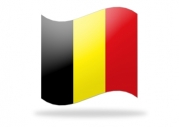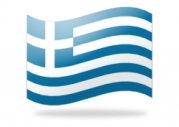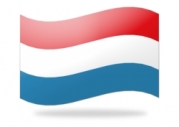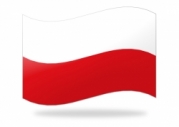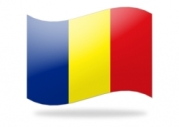Lunch Debate on “Protect and Check your Hearing”
- font size decrease font size increase font size
- 12 Mar
Hosted by MEP Igor Šoltes (Slovenia, Greens/EFA) – European Parliament in Brussels –
Wednesday the 6th of March 2019

Participants gathering in front of the European Parliament,
welcomed by the MEP staff (left) and lunch debate in Action (right).
It is a yearly tradition that the joined associations EFHOH (users), AEA (professionals), and EHIMA (manufacturers) in strong cooperation with the World Health Organisation for World Hearing Day organise a lunch debate inside the European Parliament in the first week of March since 2013.
The year, the theme of this lunch debate is “Protect and Check your Hearing”
Two teams of Audiology Students and their teachers have allowed everybody inside this parliament to have their hearing checked in the morning. In total 40 people, working in the European Parliament, had their hearing screened of which 29 had perfectly normal hearing and 11 had a hearing loss in one or both ears. They were given an explanation on the results of their hearing test and received the information on how to install and use the “hearWHO” self test on their smartphone.

The two teams of audiology students & teachers (right Marie Haps – Vinci University College Brussels / left Thomas More University College Antwerp) and in the middle MEP Igor Šoltes during his hearing screening.
More than 110 participants attended the Lunch Debate, among which a lot of policy makers, MEP’s and MEP staff, representatives of user associations, professional and manufacturer organisations.
MEP Igor Šoltes (Slovenia, Greens/EFA) gave the introduction to the lunch debate, he testified that when we approached him during the EFAS International Conference in Ljubljana last year, to host this years’ lunch debate, he agreed right away, since Prevention, Awareness and Intervention for Hearing Loss, which is an invisible disability with significant impact on all aspects of quality of life, is so essential and dear to him. He was also a rock musician and therefore he knows that loud music can be tough for your ears.
Shelly Chadha from the World Health Organisation kicked off the presentations during the lunch debate with “Safe Listening and Early Identification at all ages“ 60% of childhood hearing loss is preventable. Hearing Screening needs to be done at birth, at school age but also when we turn 50. She also introduced the theme of World Hearing Day 2019, “Check your Hearing” and the brand new “HearWHO” self-test to check your hearing on a smartphone which proves to be a super tool to check our hearing and to create awareness.
Kim Ruberg from Hear-It presented a new very elaborate scientific report on the “THE SOCIAL AND ECONOMIC COSTS OF HEARING IMPAIRMENT” … one of the shocking conclusions of this report is that Untreated Disabling hearing loss costs 185 billion Euro in the EU every year … which is 25 billion Euro more than the whole EU budget for 2018! He also stated that in the EU, 22,6 million people live with untreated hearing loss … and this leads to significant negative physical, mental and social consequences. People who use hearing aids are happier, healthier and wealthier and have a better quality of life than people with untreated hearing loss.
Although Awareness and Intervention are very important … the first focus should be Prevention! Mark Laureyns from the European Association of Hearing Aid Professionals told us more on how we can make sure that Hearing Protection is effective and how we can ensure that people use it whenever it is required. More than 80% of young people don’t use hearing protection, even when they know they should. All types of hearing protection are effective and allow you to understand in noise. But if you want hearing protection to be comfortable and preserve good sound quality, you should use re-useable or even better customised hearing protection with music filters. The new EU PPE (Personal Protective Equipment) regulation which will be effective from the end of April 2019 results in better quality control of personal hearing protection!
Darja Pajk, from the European Federation of Hard of Hearing People, presented the social aspects of early identification of hearing loss. It means screening at very young age but since hearing loss can occur at any age also adult screening. It is about detecting the problem at the earliest possible time. The sooner you can detect hearing loss, the better the outcome for the person with the loss and the sooner Quality of Life can Improve. 60% of the Hard of Hearing People confirmed feeling anxiety and depression following the event of a progressive or sudden hearing loss. If we make our society accessible for people with hearing loss and if we all would understand better what it is to be hearing impaired … inclusion, participation would increase, and social and personal stigma would be resolved.
Mladen Veršič, the president of the Deaf and Hard of Hearing Association of Slovenia concluded the presentations with his testimony on how they were very successful in organising a Hearing Awareness Campaign last year. They had 312.684 reruns of a 30 second video on Hearing Awareness on 380 digital displays in 135 public transportation network vehicles in Slovenia. They used the joined IFHOH – EFHOH meeting in Ljubljana last year to contact the key stakeholders and this was, by the way, the reason that MEP Igor Šoltes agreed to host this successful Lunch Debate.
After the presentations, a very dynamic debate developed moderated by MEP Igor Šoltes. The points discussed were, the importance of not over-compressing the dynamics of music, in order to keep listening safe and still maintain good quality music. This point was very well taken, and it is also the reason why the new ITU/WHO standard on safe listening is focussing on weekly dose of sound exposure and not only at the maximal loudness. Further we should promote quality labels, like “Mastered for iTunes”, where one of the requirements is good dynamics and no over-compression. Another question raised was how we can ensure the points discussed during this lunch debates are taken further by politicians and can be topics for the coming up European Elections. MEP Šoltes responded that for the elections it was maybe a little late, but he certainly agrees that much more attention needs to be given on the invisible disability of hearing loss and that he takes this at heart. To conclude, a question was raised on how ITU/WHO can ensure that the new Safe Listening Guidelines are enforced and used by the big companies in their products. Shelly Chadha from WHO explained that the ITU standards are voluntary, but the big companies are actively involved in developing these standards. WHO also urges states and the European Commission to incorporate these guidelines in their local regulations.
We can conclude that is was a very well attended and high quality lunch debate promoting quality prevention and awareness on Hearing and Hearing Care.
https://www.aea-audio.org/portal/index.php/world-hearing-day


